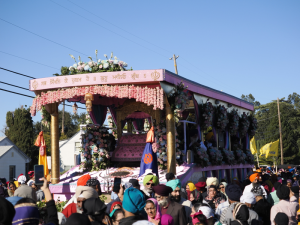Veto on Bill to Ban Caste Discrimination in California
Governor Gavin Newsom refused to sign Senate Bill 403 on Saturday October 7, 2023 which would have defined “ancestry” in the Fair Employment and Housing Act, the Unruh, Act and the Education Code to include the word “caste” as a protected characteristic, and identify other dimensions of discrimination based on ancestry such as lineage, descent, national origin, religion, genetic information etc.
What is Caste?
(Included for instructional purposes only, not intended to cause shame, blame, or hurt the sentiments of anyone, or any caste.)
In India, and South Asia, one’s caste may possibly be identified by their last name or surname by those in the know. Most Americans, including many of second generation Indian and South Asian origin, would not be able to make such a distinction.
Caste is essentially a Hindu hierarchy pyramid of privilege that one is born to, depending on their deeds in a former life. Caste is a rigid tradition dating back than 3,000 years, originally written in the Manusmriti or Manava-Dharmasastra, Laws of Manu:
- Creation of the World
- Source of Dharma
- Dharm of four Varna (social classes or caste)
- Law of Karma, rebirth, and liberation
Caste is inescapable, and can only be changed through rebirth or reincarnation. One is born to the caste of their parents, and both parents must be of the same caste for it to be recognized and registered, otherwise one is considered casteless.
Caste also determines the type of occupation one works at. Belief, that the caste system originates with the Hindu god, Brahma, equivocates different parts of the body of Brahma the Creator, with the various castes and their professions. There are four basic castes, each with many divisions, and an entire sub caste formerly known as untouchables.
- Brahmin: highest – represents the eyes and mind of Brahma – traditionally priests and teachers.
- Kshatriya: second highest – represents arms of Brahma – traditionally warriors.
- Vaishya: third highest – represents the legs of Brahma – traditionally farmer, trader, merchants.
- Shudra: fourth highest – represents the feet of Brahma – traditionally manual laborers.
- Dalit: lowest – no representation of Brahma – traditionally cleaners of latrines, crematories.
Dalits, who are considered untouchable for their entire life, sometimes convert to other religions such, as Buddhism, Christianity, and Sikhi, attempting to escape the ramifications of the caste system such as being considered impure, unable to enter a temple, using a separate water source, using a separate walkway or street, attending separate educational classes etc.
Is Banning Caste Discrimination in California a Good Idea?
India outlawed caste discrimination in 1948, and implemented it by 1950. Seattle WA enacted a bill banning caste discrimination effective March, 25, 2023, and Fresno CA voted to ban caste discrimination of September 28, 2023. So why not the state of California?
Opposing Opinions
People on both sides of the issue feel discriminated against.
Advocates: Those, including many Sikhs, who favor and support the bill to ban caste discrimination, feel that a ban on caste represents a commitment to freedom which would offer another layer of protection for those vulnerable to bigotry, oppression, and persecution, in such areas such as housing, wages, education, and social attitudes, because of their being born to a lower caste that they cannot escape. A group of activists who had promoted the bill went on a hunger strike hoping that it would help them to be heard.
Opposition. Those who oppose the bill feel targeted, and liken the bill to the beginning of cultural genocide for Hindus, in California, who could potentially be labeled as oppressors, because they are born into an upper caste of privilege. They fear repercussions which could take unfair advantage of a system defining ancestry as including caste.
What are California’s Current Civil Right Laws?
Governor Gavin Newsom based his refusal to sign Bill 403 on the fact that civil rights laws in California already prohibit discrimination based on age, ancestry, color, race, religion, national origin, disability, medical condition, genetic information, gender expression, gender identity, sex, sexual orientation, marital and family status, military or veteran status, primary language, immigration status, citizenship etc. California Civil Rights laws which prohibit discrimination are encouraged to be liberally interpreted on behalf of victims, and include, but are not limited to:
Education Code: California Schools kindergarten through grade 12. Students who are threatened with removal from school, which would deprive them of the fundamental right to a publicly financed education, are entitled to a notice outlining the basis for the recommended removal, and an opportunity to be heard.
Disabled Student Programs and Services: Provides support services and educational accommodations to students with disabilities in order to facilitate access to community colleges.
Fair Employment and Housing Act: Prohibits discrimination in housing in California.
California Labor and Employment Law: Prohibits employers from discriminating, and retaliating, against employees.
Unruh Civil Rights Act California Civil Code Section 51 through 52: Provides protection from discrimination by all business establishments in California.
Action:
Anyone who feels they have been a victim of discrimination, for any reason, are encouraged to file complaints with the Department of Fair Employment and Housing within one year.
Call: (800) 884-1684 (voice or via relay operator 711) or (800) 700-2320 (TTY)
Email: [email protected]
Online: www.dfeh.ca.gov






